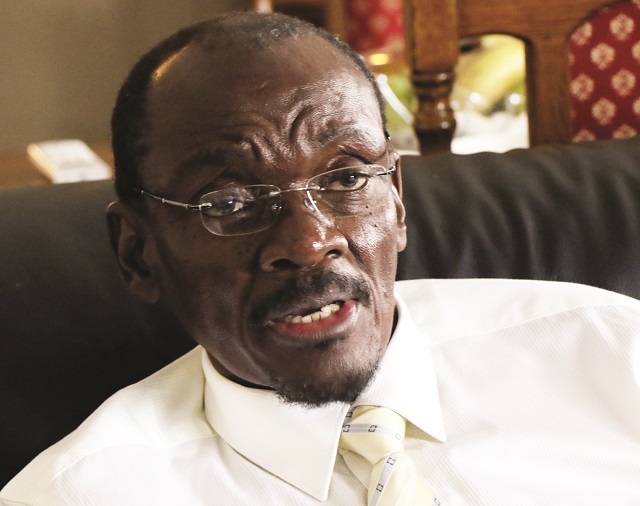BULAWAYO – Former vice president Kembo Mohadi, who resigned in disgrace over a humiliating and damaging sex scandal on Monday, will retain his position as Zanu PF’s second secretary, the party has said.
Mohadi put on a brave front and mingled with colleagues at the ruling party’s politburo meeting in Harare on Wednesday, days after his shock departure over salacious phone conversations leaked to ZimLive in which he was heard arranging sex with a slew of women, some of them married.
Zanu PF spokesman Simon Khaya Moyo told journalists that the politburo had “received” and “accepted” the sex-crazed former vice president’s “unexpected” resignation, but added that his party deployment would not be affected.
“The resignation by the former vice president from government will not affect Cde Mohadi’s position in the party. He will remain the second secretary and vice president of the party,” Moyo said.
It remains unclear how this would hold if a second State vice president – who would naturally take up Mohadi’s position in Zanu PF – is appointed.
President Emmerson Mnangagwa thanked and praised Mohadi for his service, telling the politburo that he had not expected him to step down despite the damaging leaks.
“We convene today following the resignation of Col (Rtd) Cde KCD Mohadi from the post of vice president of the Republic of Zimbabwe. His resignation from the governance architecture of the Republic was unexpected,” Mnangagwa said.
“On behalf of the government, the party Zanu PF and indeed on my own behalf, I would like to thank the former vice president for his service to our country. I commend him for the role he played under the second republic in advancing our government’s national development agenda as enunciated in Vision 2030 and National Development Strategy 1.”
Announcing his resignation, Mohadi, who assumed the vice presidency following the 2017 coup that toppled the late Robert Mugabe, maintained his innocence saying his phone had been hacked and his voice cloned by enemies propagating “falsehoods and character assassination” in “digital ecosystems.”















